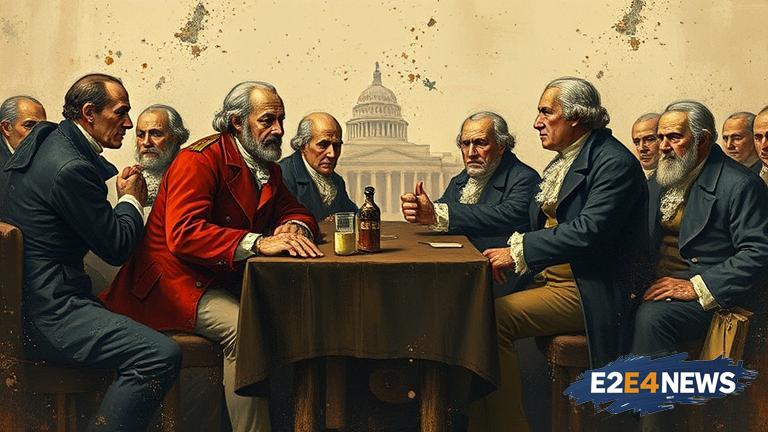The concept of factionalism has been a persistent concern in American politics since the country’s founding. The Founding Fathers, including James Madison and George Washington, warned about the dangers of factionalism in their writings and speeches. They believed that factionalism could lead to the downfall of the republic, as it would create divisions and conflicts that would undermine the unity and stability of the government. In Federalist No. 10, Madison argued that factionalism was a natural consequence of a large and diverse republic, but that it could be mitigated through the establishment of a strong central government and a system of checks and balances. Despite these efforts, factionalism has continued to be a problem in American politics, with various groups and interests vying for power and influence. The rise of political parties in the early years of the republic further exacerbated the problem, as parties often prioritized their own interests over the common good. Today, the dangers of factionalism are more apparent than ever, with the increasing polarization of American politics and the rise of identity politics. The proliferation of social media has also contributed to the problem, as it allows individuals to curate their own information and surround themselves with like-minded individuals, further reinforcing their existing beliefs and biases. Furthermore, the decline of civil discourse and the erosion of trust in institutions have created an environment in which factionalism can thrive. The consequences of factionalism are far-reaching, ranging from gridlock and political polarization to social unrest and violence. To address the problem, it is essential to promote civic education and engagement, encourage critical thinking and media literacy, and foster a culture of tolerance and respect for differing opinions. Additionally, efforts to reform the electoral system and promote more representative government could help to reduce the influence of factionalism. Ultimately, the key to mitigating the dangers of factionalism lies in the ability of citizens to put the common good above their own individual interests and to work towards a more unified and inclusive society. The Founding Fathers’ fears about factionalism were well-founded, and their warnings remain relevant today. By understanding the dangers of factionalism and working to address them, Americans can help to ensure the long-term health and stability of their democracy. The importance of this issue cannot be overstated, as the future of the republic depends on the ability of its citizens to come together and find common ground. The challenges posed by factionalism are significant, but they are not insurmountable, and with effort and dedication, it is possible to create a more united and prosperous society.
